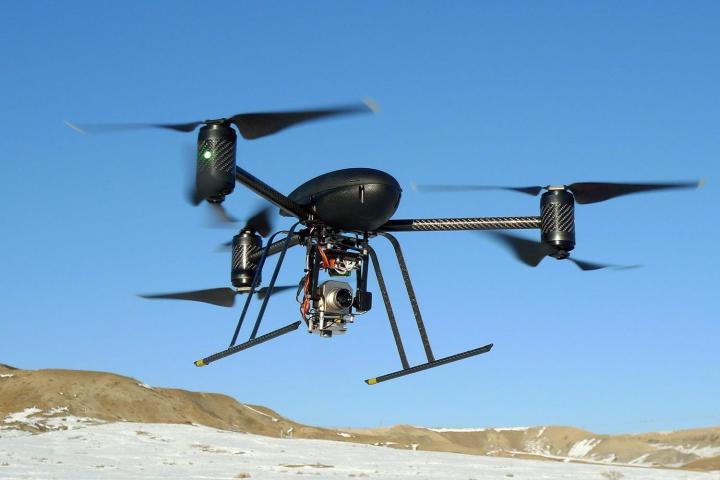
Put down your shotgun, folks. There won’t be any drone-hunting happening until next spring or later – at least if you’re in the small town of Deer Trail, Colorado, where one man’s mission to make it legal to shoot down quadrocopters and other unmanned aerial vehicles (UAVs) has been delayed until April 2014.
Deer Trail local Phillip Steel launched an effort earlier this year to create official “drone-hunting licenses” that would allow purchasers to blow away UAVs that infiltrate the airspace above Deer Trail, and even collect bounties for handing over decimated drone parts.
Unfortunately for Steel, a recent Deer Trail Board of Trustees vote (captured by the Colbert Report for a November segment) ended in a tie, sending the vote to the community’s 523 residents, reports the Daily Beast. The vote was set to take place today, December 10; however, Deer Trail resident Jessica Stoumbaugh protested the vote, forcing a judge to delay any action on Steel’s drone-hunting ordinance until next year.

The problem with drones, writes Steel on his Drone Shooters website, is that they will give the U.S. government the power to “control all.”
“Forget about States’ Rights. Do you like to shoot? Hunt? Play softball?” asks Steel. “Do you want to build a house or barn? The federal government will control all. Our federal overseers will rule us and tax all. We will serve a ruling elite who has already exempted themselves from any laws that they may pass.”
Steel’s hatred of drones is fueled by the Federal Aviation Administration’s forthcoming rules to allow commercial drones into U.S. airspace in larger numbers – as many as 15,000 or so within the next five to 10 years, according to FAA estimates. When Amazon announced its plans to introduce a delivery service that uses drones, called Prime Air, Steel’s drone-killing efforts struck a chord with Web users who were appalled at the idea of swarms of flying robots taking over the skies.
While Deer Trail has yet to approve any form of drone-hunting licenses, Steel won’t be stopped by technicalities like votes and laws. Instead, he has begun selling drone-hunting licenses himself, through his website, for $25 a pop – and people have actually bought them. Say what you will about Phillip Steel – we think he may be an evil genius.


